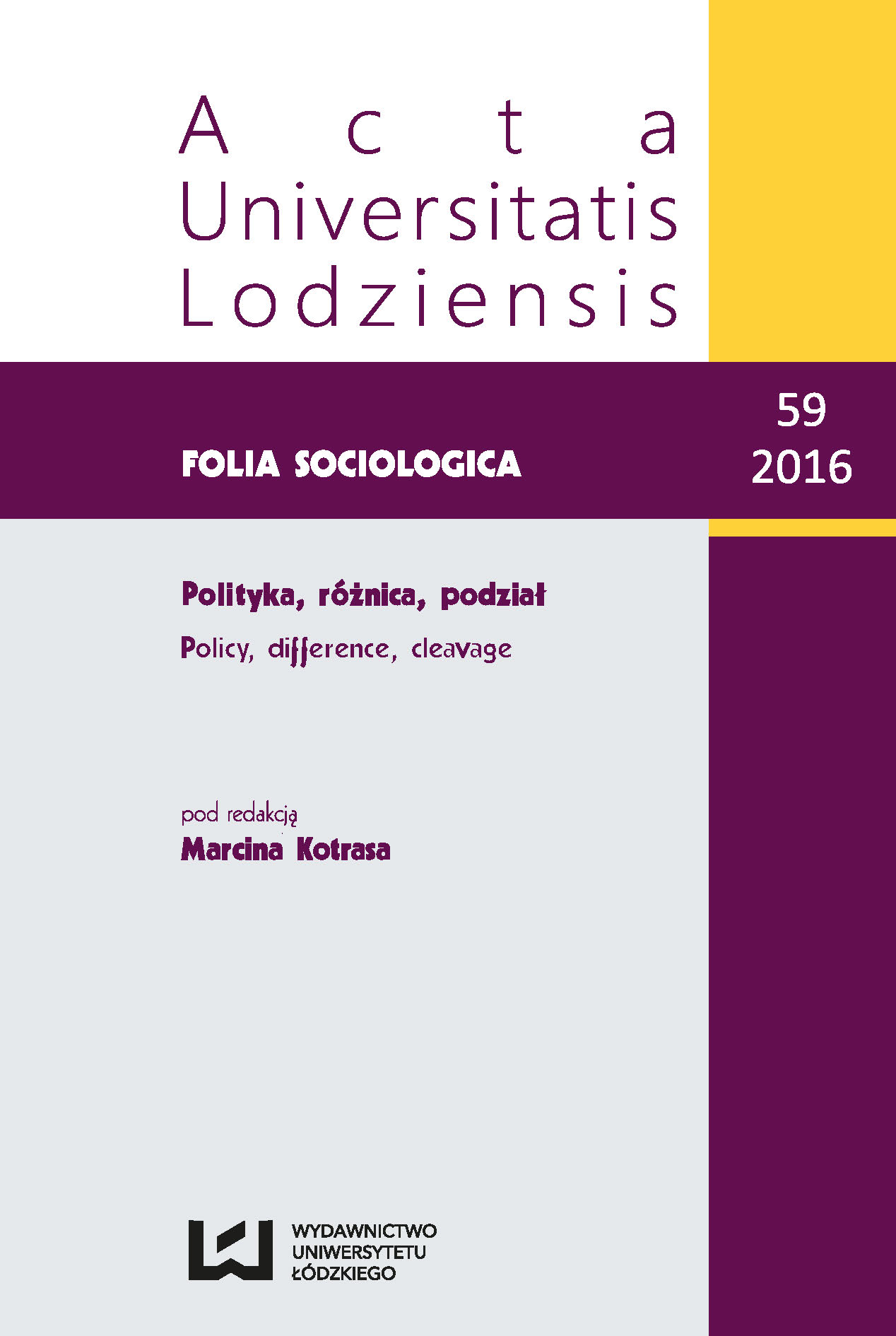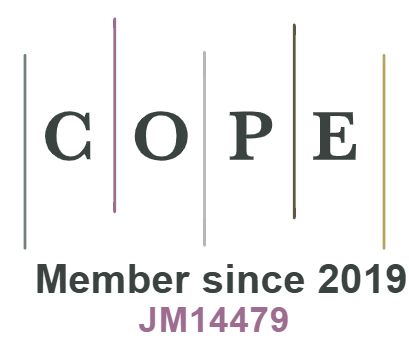Dlaczego demokracja? Proceduralne, instrumentalne, epistemiczne i deliberacyjne teorie demokracji
DOI:
https://doi.org/10.18778/0208-600X.59.01Słowa kluczowe:
Demokracja proceduralna, demokracja epistemiczna, demokracja substancjalna, demokracja deliberacyjna, demokracja instrumentalnaAbstrakt
Celem artykułu jest prezentacja proceduralnych i instrumentalnych teorii demokracji oraz ich interpretacja w kontekście epistemicznych i deliberacyjnych strategii legitymacji rządów demokratycznych. Wyróżnione zostają odmiany demokracji proceduralnej: proceduralizm doskonały, niedoskonały i czysty. Analizowane są jej praktyczno-polityczne implikacje pod postacią demokracji losowej, agregacyjnej i deliberacyjnej. W dalszej kolejności opisane zostają instrumentalne i substancjalne interpretacje procedur demokratycznych oraz argumenty ich krytyków. Autor tekstu wysuwa tezę o niemożliwości ścisłego rozdziału demokracji proceduralnej od substancjalnej. W oparciu o nią skrytykowany zostaje pogląd o wyjątkowym statusie demokracji deliberacyjnej jako koncyliacyjnej wobec sporu proceduralizm-substancjalizm.
Bibliografia
Anderson E. (2006), The Epistemology of Democracy, “Episteme: A Journal of Social Episte-mology”, Vol. 3, No. 1–2, s. 8–22.
Google Scholar
Arneson R.J. (2004), Democracy is not intrinsically just, [w:] K. Dowding, R. E. Goodin, C. Pateman (eds.), Justice and Democracy. Essays for Brian Barry, Cambridge University Press, Cambridge, s. 40–58.
Google Scholar
DOI: https://doi.org/10.1017/CBO9780511490217.003
Arneson R.J. (2009), The Supposed Right to a Democratic Say, [w:] J. P. Christman, T. Christiano (eds.), Contemporary Debates in Political Philosophy, Wiley-Blackwell, Oxford, s. 197–212.
Google Scholar
DOI: https://doi.org/10.1002/9781444310399.ch11
Arrow K. (1951), Social Choice and Individual Values, John Wiley and Sons, New York.
Google Scholar
Aspinall W. (2010), A route to more tractable expert advice, “Nature”, Vol. 463, No. 21, s. 294–295.
Google Scholar
Barber B.R. (1984), Strong Democracy. Participatory Politics for a New Age, University of California Press, Berkeley.
Google Scholar
Bessette J. (1980), Deliberative Democracy: The Majority Principle in Republican Government, [w:] R.A. Goldwin, W.A. Schambra (eds.), How Democratic is the Constitution?, American Enterprise Institute for Public Policy Research, Washington, D.C.–London, s. 102–116.
Google Scholar
Bessette J. (1994), The Mild Voice of Reason. Deliberative Democracy and American National Government, University of Chicago Press, Chicago.
Google Scholar
Bijker W.E., Bal R., Hendricks R. (2009), The Paradox of Scientific Authority, MIT Press, Cambridge, MA.
Google Scholar
Bohman J. (1998), The Coming of Age of Deliberative Democracy, “The Journal of Political Philosophy”, Vol. 6, No. 6, s. 400–425.
Google Scholar
Bohman J. (2006), Deliberative Democracy and the Epistemic Benefits of Diversity, “Episteme”, Vol. 3, No. 3, s. 175–191.
Google Scholar
Brennan J. (2016), Against Democracy, Princeton University Press, Princeton–Oxford.
Google Scholar
Buchanan A. (1976), A Critical Introduction to Rawls’ Theory of Justice, [w:] H.G. Blocker, E.H. Smith (eds.), John Rawls Theory of Social Justice: An Introduction, Ohio University Press, Athens.
Google Scholar
Caplan B. (2007), The Myth of Rational Voter. Why Democracies Choose Bad Policies, Princeton University Press, Princeton.
Google Scholar
DOI: https://doi.org/10.1515/9781400828821
Carson L., Martin B. (1999), Random Selection in Politics, Praeger Publisher, Wessport, CT.
Google Scholar
Christiano Th. (1996), The Rule of the Many. Fundamental Issues in Democratic Theory, Westview Press, Boulder, CO.
Google Scholar
Christiano Th. (2011), An Instrumental Argument for a Human Right to Democracy, “Philosophy and Public Affairs”, Vol. 39, No. 2, s. 142–176.
Google Scholar
Cohen J. (1986), An Epistemic Conception of Democracy, “Ethics”, Vol. 97, No. 1, s. 26–38.
Google Scholar
Cohen J. (1996), Procedure and Substance in Deliberative Democracy, [w:] S. Benhabib (ed.), Democracy and Difference. Contesting the Boundaries of the Political, Princeton University Press, Princeton, NJ., s. 95–119.
Google Scholar
Cohen J. (1999), Reflections on Habermas on Democracy, “Ratio Juris”, Vol. 12, No. 4, s. 385–416.
Google Scholar
Coleman J., Ferejohn J. (1986), Democracy and Social Choice, “Ethics”, Vol. 97, No. 1, s. 6–25.
Google Scholar
Connolly W. E. (1995), Ethos of Pluralization, University of Minnesota Press, Minneapolis.
Google Scholar
Connolly W. E. (2002), Identity Difference: Democratic Negotiations of Political Paradox, University of Minnesota Press, Minneapolis.
Google Scholar
Cooke M. (2000), Five Arguments for Deliberative Democracy, “Political Studies”, Vol. 48, s. 947–969.
Google Scholar
Dahl R. A. (2006), On Political Equality, Yale University Press, New Haven‒London.
Google Scholar
Delannoi G., Dowlen O. (eds.) (2010), Sortition: Theory and Practice, Imprint Academic, Exeter.
Google Scholar
Dryzek J. (2000), Deliberative democracy and beyond. Liberals, critics, contestations, Oxford University Press, Oxford.
Google Scholar
Elstub S. (2010), The Third Generation of Deliberative Democracy, “Political Studies Review”, Vol. 8, s. 291–307.
Google Scholar
Engelstad F. (1989), The Assignment of Political Office by Lot, “Social Science Information”, Vol. 28, No. 1, s. 23–50.
Google Scholar
Estlund D. (1993), Making Truth Safe for Democracy, [w:] D. Copp, J. Hampton, J. Roemer (eds.), The Idea of Democracy, Cambridge University Press, Cambridge, s. 71–100.
Google Scholar
Estlund D. (1997), Beyond Fairness and Deliberation: The Epistemic Dimension of Democratic Authority, [w:] J. Bohman, Deliberative Democracy. Essays on Reason and Politics, MIT Press, Cambridge, MA, s. 173–204.
Google Scholar
Estlund D. (2003), Why Not Epistocracy?, [w:] N. Reshotko (ed.), Desire, Identity and Existence: Essays in Honor of T.M. Penner, Academic Printing and Publishing, Kelowna, BC, s. 53–69.
Google Scholar
DOI: https://doi.org/10.2307/j.ctv10kmfns.8
Estlund D. (2008), Democratic Authority. A Philosophical Framework, Princeton University Press, Princeton–Oxford.
Google Scholar
DOI: https://doi.org/10.1515/9781400831548
Fishkin J. (1991), Democracy and Deliberation. New Directions for Democratic Reform, Yale University Press, New Haven–London.
Google Scholar
Fishkin J. (1992), The Dialogue of Justice. Towards a Self-Reflective Society, Yale University Press, New Haven–London.
Google Scholar
Grofman B., Feld S. L. (1988), Rousseau’s General Will: A Condorcetian Perspective, “The American Political Science Review”, Vol. 82, No. 2, s. 567–576.
Google Scholar
Gutmann A., Thompson D. (1996), Democracy and Disagreement, Harvard University Press, Cambridge, MA–London.
Google Scholar
Harnasyi J. C. (1975), Can the Maximin Principle Serve as a Basis for Morality? A Critique of John Rawls’s Theory, “The American Political Science Review”, Vol. 69, No. 2, s. 594–606.
Google Scholar
Hauptmann E. (2001), Can Less Be More? Leftist Deliberative Democrats’ Critique of Participatory Democracy, “Polity”, Vol. 33, No. 3, s. 397–421.
Google Scholar
Knight J., Johnson J. (1994), Aggregation and Deliberation: On the Possibility of Democratic Legitimacy, “Political Theory”, Vol. 22, No. 2, s. 277–296.
Google Scholar
Landemore H. (2013), Democratic Reason. Politics, Collective Intelligence, and the Rule of the Many, Princeton University Press, Princeton–Oxford.
Google Scholar
DOI: https://doi.org/10.1515/9781400845538
Lissowski G. (2010), Uzasadnienie metod wyboru społecznego, „Decyzje”, nr 14, s. 5–32.
Google Scholar
MacGilvary E. (2014), Democratic Doubts: Pragmatism and the Epistemic Defense of Democracy, “The Journal of Political Philosophy”, Vol. 22, No. 1, s. 105–123.
Google Scholar
Mill J. S. (2011), O rządzie reprezentatywnym oraz O zasadzie użyteczności, przeł. G. Czernicki, F. Mierzejewski, Hachette, Warszawa.
Google Scholar
Nozick R. (1999), Anarchia, państwo i utopia, tłum. P. Maciejko, M. Szczubiałka, Wydawnictwo Aletheia, Warszawa.
Google Scholar
Page S. E. (2007), The Difference. How the Power of Diversity Creates Better Groups, Firms, Schools, and Societies, Princeton University Press, Princeton.
Google Scholar
DOI: https://doi.org/10.1515/9781400830282
Peter F. (2008), Pure Epistemic Proceduralism, “Episteme. A Journal of Social Epistemology”, Vol. 5, No. 1, s. 33–55.
Google Scholar
DOI: https://doi.org/10.3366/E1742360008000221
Peter F. (2009), Democratic legitimacy, Routledge, New York.
Google Scholar
DOI: https://doi.org/10.4324/9780203401392
Prostak R. (2014), Teista w demoliberalnym świecie. Rzecz o amerykańskich rozważaniach wokół rozumnej polityki, Ośrodek Myśli Politycznej, Kraków.
Google Scholar
Rawls J. (2001), Prawo ludów, tłum. M. Kozłowski, Fundacja Aletheia, Warszawa.
Google Scholar
Rawls J. (2009), Teoria sprawiedliwości, tłum. M. Panufiuk, J. Pasek, A. Romaniuk, Wydawnictwo Naukowe PWN, Warszawa.
Google Scholar
Rawls J. (2012), Liberalizm polityczny, tłum. A. Romaniuk, Wydawnictwo Naukowe PWN, Warszawa.
Google Scholar
Riker W. H. (1982), Liberalism against Populism: A Confrontation between the Theory of Democracy and the Theory of Social Choice, W.H. Freeman, San Francisco.
Google Scholar
Sandel M. J. (2009), Liberalizm a granice sprawiedliwości, tłum. A. Grobler, WAiP, Warszawa.
Google Scholar
Sanders L. (1997), Against Deliberation, “Political Theory”, Vol. 25, No. 3, s. 347–376.
Google Scholar
Saward M. (2008), Demokracja, tłum. A. Burek, Wydawnictwo Sic!, Warszawa.
Google Scholar
Schumpeter J. (1995), Kapitalizm, socjalizm, demokracja, tłum. M. Rusiński, Wydawnictwo Naukowe PWN, Warszawa.
Google Scholar
Shapiro I. (2006), Stan teorii demokracji, tłum. I. Kisilowska, Wydawnictwo Naukowe PWN, Warszawa.
Google Scholar
Somin I. (2013), Democracy and Political Ignorance. Why Smaller Government is Smarter, Stanford University Press, Stanford, CA.
Google Scholar
Stears M. (2010), Demanding Democracy. American Radicals in Search of a New Politics, Princeton University Press, Princeton, NJ.
Google Scholar
DOI: https://doi.org/10.1515/9781400835041
Steyvers M., Miller B. (2015), Cognition and Collective Intelligence, [w:] T.W. Malone, M.S. Bernstein (eds.), Handbook of Collective Intelligence, MIT Press, Cambridge, MA, s. 119–137.
Google Scholar
Stone P. (2011), The Luck of the Draw, Oxford University Press, Oxford.
Google Scholar
DOI: https://doi.org/10.1093/acprof:oso/9780199756100.001.0001
Sunstein C. R. (2009), Infotopia. O zbiorowym procesie wytwarzania wiedzy, tłum. K. Bartuzi, Wydawnictwo Sejmowe, Warszawa.
Google Scholar
Surowiecki J. (2010), Mądrość tłumów. Większość ma rację w ekonomii, biznesie i polityce, tłum. K. Rojek, Wydawnictwo Helion, Gliwice.
Google Scholar
Tam H. (2011), Komunitaryzm. Nowy program obywatelski i polityczny, tłum. J. Grygieńć, A. Szahaj, wprowadzenie J. Grygieńć, Wydawnictwo Naukowe UMK, Toruń.
Google Scholar
Waldron J. (2004), Law and Disagreement, Clarendon Press, Oxford.
Google Scholar
Wall S. (2007), Democracy and Equality, “The Philosophical Quarterly”, Vol. 57, No. 228, s. 416–438.
Google Scholar
Wolff R. P. (1977). Understanding Rawls, Princeton University Press, Princeton, NJ.
Google Scholar
Young I.M. (2000), Inclusion and Democracy, Oxford University Press, Oxford–New York.
Google Scholar
Pobrania
Opublikowane
Jak cytować
Numer
Dział
Licencja

Utwór dostępny jest na licencji Creative Commons Uznanie autorstwa – Użycie niekomercyjne – Bez utworów zależnych 4.0 Międzynarodowe.










